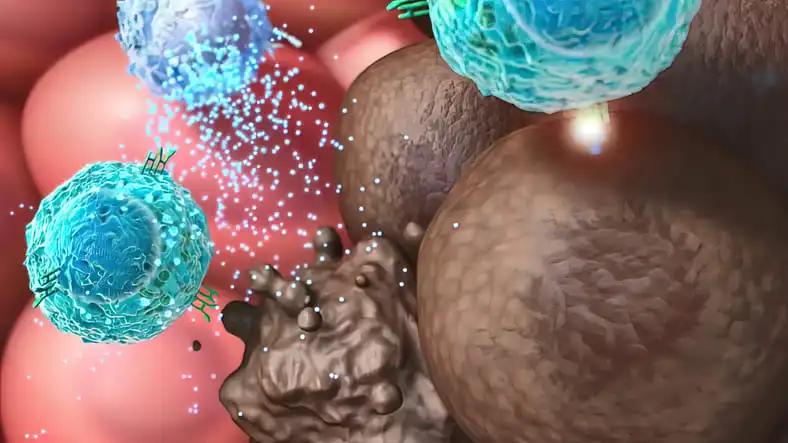KEY TAKEAWAYS
- The phase 2 TRANSCEND FL study analyzed the safety of all patients treated with liso-cel.
- The study’s primary endpoint was the ORR, and secondary endpoints were assessing the CR rate, DOR, PFS, OS, safety, and PK.
- The trial confirmed that for R/R FL pts, liso-cel exhibited significant and durable response rates and an encouraging safety profile.
The TRANSCEND trial study enrolled patients (pts) with R/R follicular lymphoma (FL) who were 3L+ and second-line pts with progression within 24 months of diagnosis (POD24) and/or modified Groupe d’Etude des Lymphomes Folliculaires (GELF) criteria. Every participant had previously received at least one combination systemic therapy, which included both an anti-CD20 antibody and an alkylator. Following lymphodepleting chemotherapy, lisocabtagene maraleucel (liso-cel) was administered to these pts. They were permitted bridging therapy. The primary objective was to determine ORR based on an independent review committee (IRC) using the Lugano 2014 criteria through PET/CT scans. The study also had secondary objectives such as evaluating CR rate, DOR, PFS, OS, safety aspects, and PK.
By the last data cutoff on January 27, 2023, 139 pts underwent leukapheresis, of which 130 (94%) were treated with liso-cel and 124 (89%) were eligible for efficacy evaluation per the IRC. For those in the 3L+ FL category, 43% had a record of POD24, 53% fit the GELF criteria, and 64% were double resistant to both anti-CD20 antibody and alkylator. On average, patients had undergone 3 treatment lines before, ranging from 2 to 10. The average follow-up duration was 18.9 months, with a range of 0.3 to 28.2 months. Among 3L+ efficacy evaluable patients (n=101), the primary goal of ORR was achieved at 97.0%. The CR rate stood at 94.1%. Median DOR and PFS durations were undetermined, but their 12-month statistics were 81.9% and 80.7% respectively. 2L+ FL patients showed comparable efficacy. In terms of safety (n=130 patients), the most frequent severe adverse events (grade ≥3) were cytopenias. There was one recorded death due to an extreme macrophage activation syndrome. 58% experienced cytokine release syndrome (CRS) but only 1% were of grade 3 intensity. Neurological events were observed in 15%, with 2% being grade 3. Prolonged cytopenia was seen in 22% and grade ≥3 infection in 5% of pts.
For R/R FL patients, liso-cel showcased durable response rates, complemented by a favorable safety profile. The study reported low rates of grade ≥ 3 TEAEs of CRS/NEs, prolonged cytopenia, and infection.
Source: https://clml-soho2023.elsevierdigitaledition.com/446/index.html
Clinical Trial: https://classic.clinicaltrials.gov/ct2/show/NCT04245839
Nastoupil, L. J., Dahiya, S., Palomba, M. L., Garcia-Sancho, A. M., Ortega, J. L. R., Kuruvilla, J., Jager, U., Cartron, G., Izutsu, K. I., Dreyling, M., Kahl, B., Ghesquieres, H., Ardeshna, K., Goto, H., Barbui, A. M., Abramson, J. S., Borchmann, P., Fleury, I., Mielke, S., . . . Morschhauser, F. (2023). IBCL-098 TRANSCEND FL: Phase II Study Results of Lisocabtagene Maraleucel (Liso-Cel) in Patients With R/R Follicular Lymphoma (FL). Clinical Lymphoma Myeloma and Leukemia, 23, S447-S448. https://doi.org/10.1016/S2152-2650(23)01349-6



